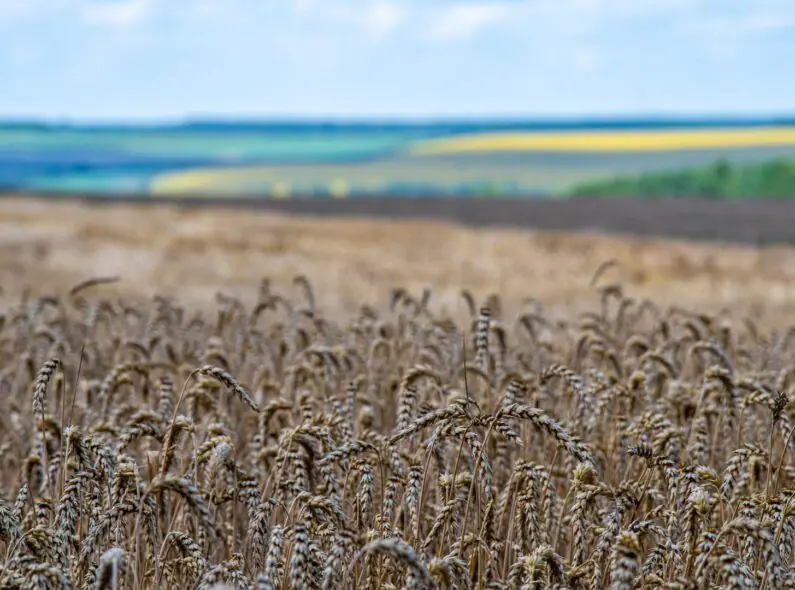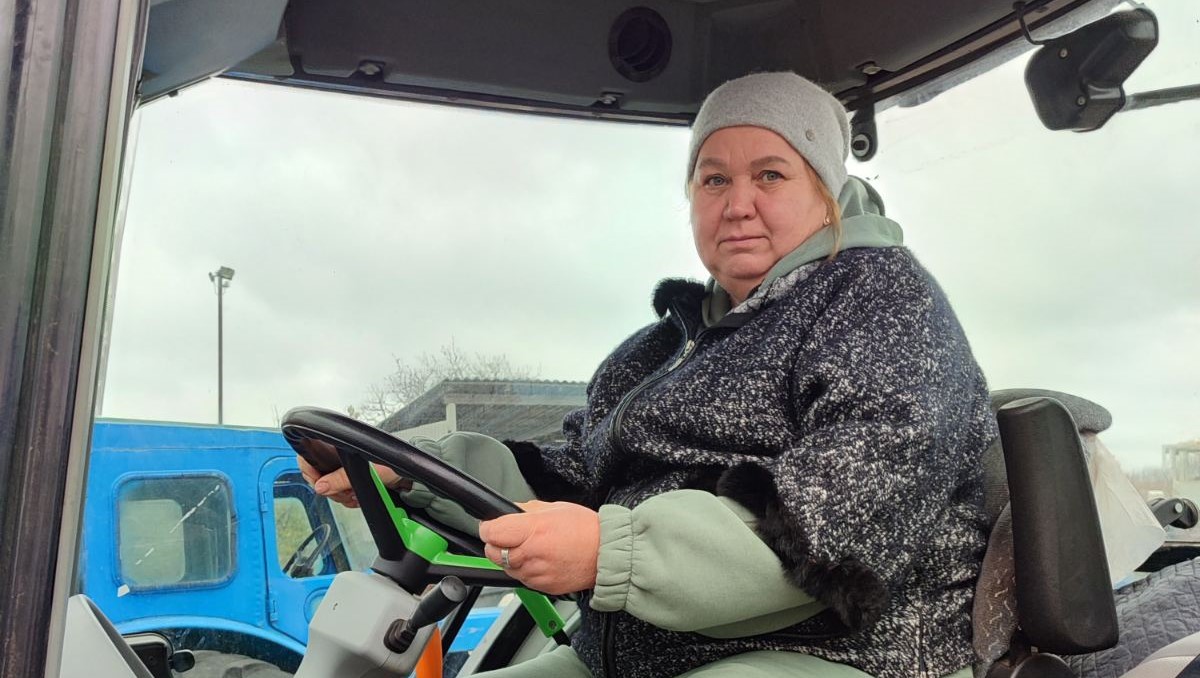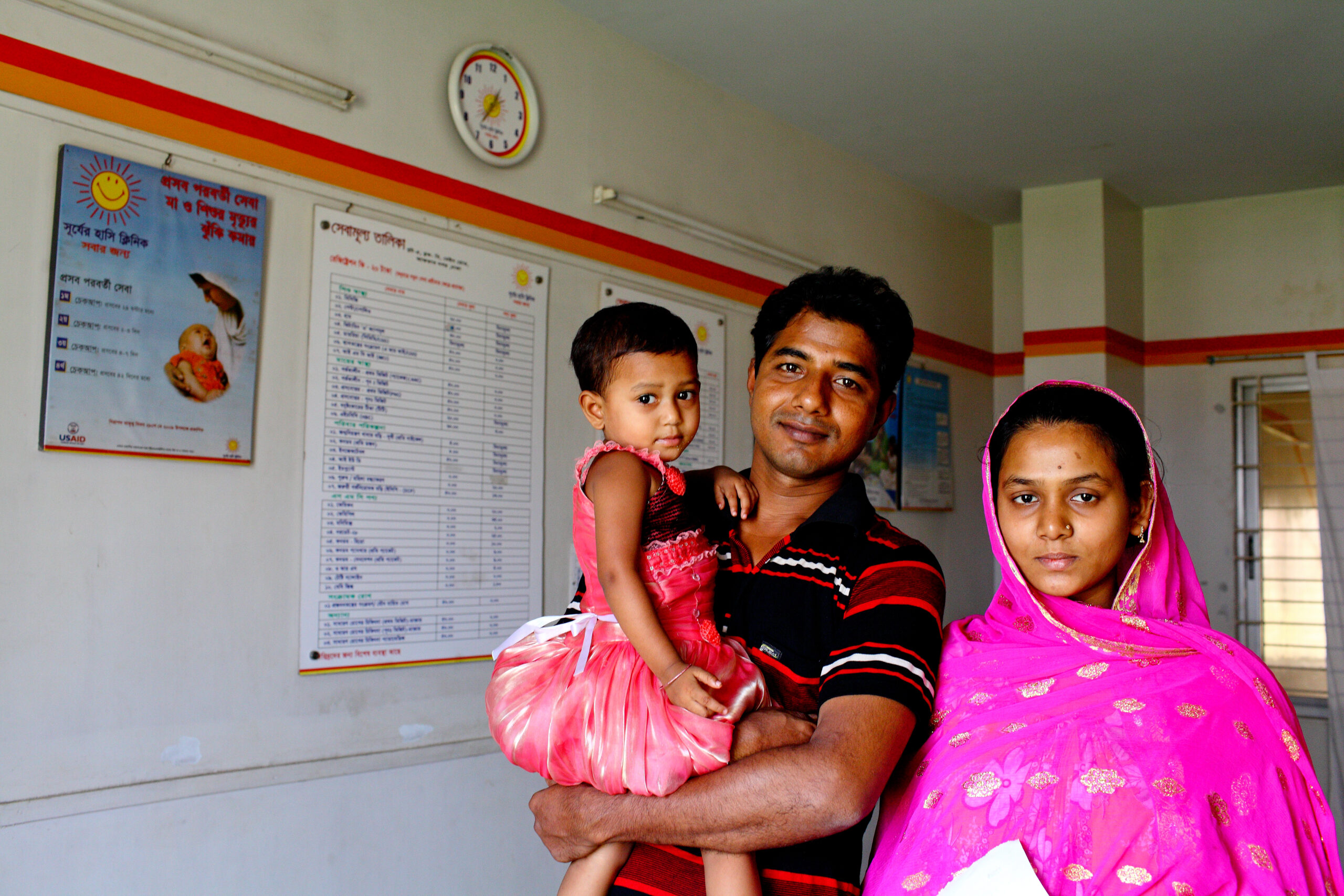“Our resources are depleting, my agribusiness is becoming unprofitable,” said Tetyana, who established the Alex-Agro farm with her husband, who is now deceased, 18 years ago.
Tetyana’s experience is like what many Ukrainian farmers have faced since Russian forces invaded Ukraine two years ago. Once known as the breadbasket of Europe because of its abundant agricultural production, Ukraine, along with Russia, used to produce 30% of the world’s wheat. Since the war, Ukraine’s agricultural sector has suffered $80 billion in losses, including $35 billion in crop production alone, which has driven up global food prices—something particularly painful for those in lower-income countries.
Due to disruptions in logistics, low grain prices, and the exhaustion of their own resources, small farmers like Tetyana are often unable to purchase the fertilizers necessary to boost production. The cost of sowing in 2023 increased by 45-50% compared to 2022. Many farmers have responded by reducing fertilizer application by half, which results in lower yields, negatively impacting the long-term sustainability of the Ukrainian agricultural sector and global food security.
Breaking Ground, Breaking Barriers
To foster agricultural production, the U.S. Government-funded Agriculture Growing Rural Opportunities (AGRO) Activity provided 14,000 metric tonnes of fertilizer to 7,621 agricultural producers in Ukraine, including Tetyana, between November 2023 and January 2024. AGRO prioritizes women farmers like her to help them take on leadership roles, access training and resources, and contribute to the well-being of their families and communities. “This assistance is a beacon of hope, enabling us to continue working against all odds,” said Tetyana, whose farm products help to feed families and communities.
“This assistance is a beacon of hope, enabling us to continue working against all odds,” said Tetyana, whose farm products help to feed families in Ukraine and abroad.
To receive mineral fertilizer and other critical inputs, farmers apply through the State Agrarian Register administrated by Ukraine’s Ministry of Agrarian Policy and Food. For the 2023-2024 growing season, AGRO provided fertilizer to one-third of Ukraine’s registered farmers, enabling them to produce an additional 278,000 metric tonnes of grain with aggregated revenue of over $127.8 million. This supplemented over $250 million in farmers’ own financing to catalyze the production of over 2 million tonnes of crops with an estimated value of up to $464 million. Of the 7,619 farms selected to receive the fertilizer, 2,113 (28%) are owned or managed by women. This represents 48% of all women-owned farms in the State Agrarian Register that cultivate 5 to 500 hectares of grain.
Scaling Impact to Ensure Sustainability
Since 2019, Chemonics has supported Ukrainian agricultural businesses in the face of economic decline, limited access to global markets, and then the war. We continue to build on the program’s success in supporting Ukrainian farmers by drawing upon important lessons learned about damage assessment, new technologies for more efficient processing and storage of grain and other agricultural products, and analysis of market system behavior patterns.
Technology is a critical tool for achieving program objectives. Alongside 10 enterprises, we are co-investing in technologies to process grain, oilseeds, and legumes into food, fodder, and industrial products. This will allow small businesses to manufacture competitive, high-value-added products. The program also provides hands-on guidance for farmers to properly document losses resulting from the war, as briefly shown in this video. An online map of agricultural destruction, which received international recognition as an innovative data tool, holds almost 600 assets in evidence of Russia’s crimes against Ukrainian farmers. Over 300 farmers have called the toll-free line for legal advice provided by program partner All-Ukrainian Agrarian Council.

Despite continued instability in Ukraine, the agriculture sector continues to supply critical products to global markets. Ukrainian exports of agricultural products have increased substantially and, by the end of 2023, reached near pre-invasion levels for the second time, according to the Famine Early Warning System Network. Ukraine’s Ministry of Agrarian Policy and Food said export levels in December 2023 totaled more than 7 million tonnes; maize and wheat represented 43% and 26%, respectively, of the total exports of agricultural commodities. Rising export levels, helped along by the humanitarian shipping corridor, are providing important support to the Ukrainian economy and connecting more farmers, like Tetyana, with potentially profitable export markets.
Banner image caption: Ukrainian farmer Tetyana Vovchenko sits in a tractor on her farm. The photo was taken by Inna M. Alexsieieva for Chemonics.
This post was adapted from a blog written by Inna M. Aleksieieva and Cindy Shiner.



